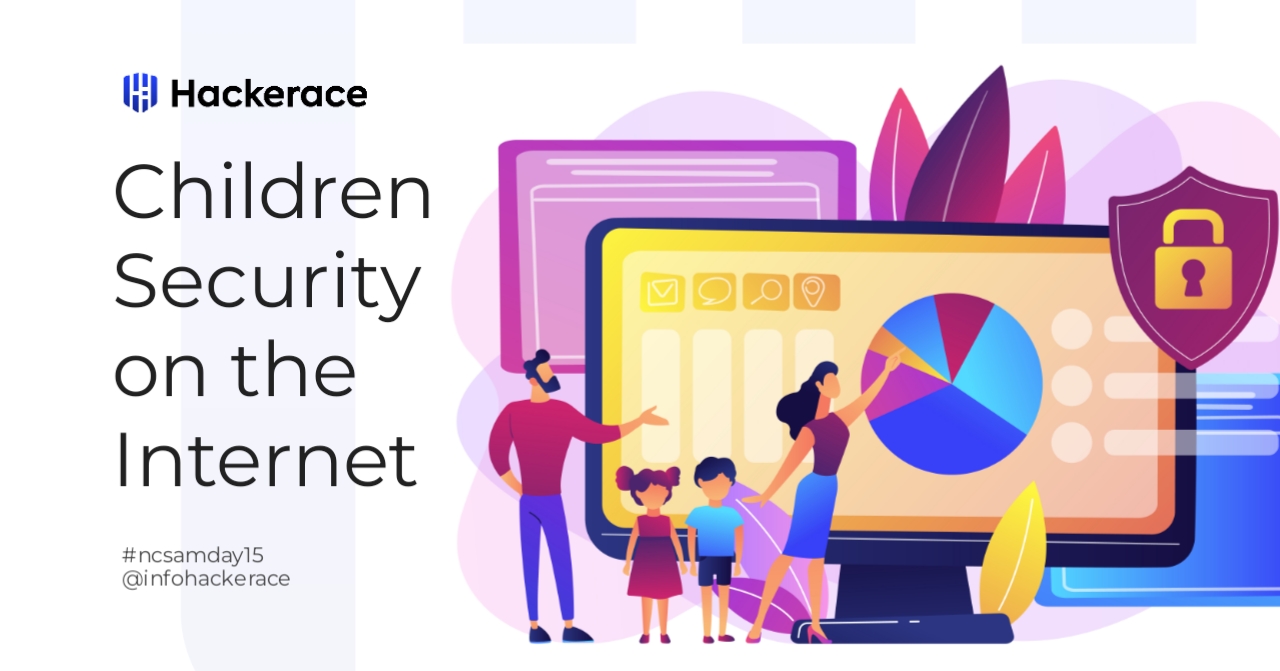Children Security on the Internet
 Hackerace
Hackerace
In this digital age, the internet is a fantastic place for children to learn, connect, and have fun, but it also has various potential dangers. As parents and guardians, it is our responsibility to empower children with knowledge and protect them from harm. Since the internet is like a vast digital playground where children can learn, play, and connect with others, it is essential to ensure their safety just like with any playground.
In this article, we'll discuss the importance of safeguarding children on the internet and explore some practical tips for parents and guardians to ensure their children's online safety.
Practical Tips to Ensure Children’s Security on the Internet
Early and open communication
Due to technological advancements and the wide trove of information available online, children now have early and easy access to the internet. This is why it has become essential for parents and guardians to have early discussions about it with their children.Discuss the potential dangers, such as cyberbullying, inappropriate content, and online scams. Encourage open communication so that your child feels comfortable discussing their online experiences with you, without the fear of being punished.
Age-Appropriate Content
Understand that not all online content is suitable for all ages. Use content filtering and parental control tools such as Kaspersky Safe Kids, Net Nanny, Apple Parental Controls, Google Family Link, etc to restrict access to age-appropriate websites and apps.These parental control tools allow you to filter content, set time limits, and monitor your child's online activities. Always review their online friends and connections regularly and ensure they only interact with people they know in real life.
Use of Strong, Unique Passwords
Help your children create strong, unique passwords for their online accounts. Explain the importance of not sharing passwords and regularly changing them.Teach Responsible Behavior and Online Etiquette
Just as we teach children to look both ways before crossing the road, we must teach them how to act responsibly online. This includes respecting people’s privacy, not sharing personal information like their full name, house address, or school name online, and treating others with kindness and respect.Monitor Their Activities Online
If your child is old enough for social media, please monitor their social media accounts. Make sure they have privacy settings configured to restrict who can see their posts and interact with them. Encourage them to only accept friend requests from people they know in real life. Keep an eye on the websites they visit, the apps they use, and their interactions with others without invading their privacy.Cyberbullying Awareness
Be aware of signs that your child may be experiencing cyberbullying, such as sudden changes in their behavior, withdrawal from social activities, or a drop in their academic performance. Educate them about cyberbullying by making sure they understand what it is, how to recognize it, and how to respond if they are a victim or a witness. Encourage them to report any cyberbullying incidents to you or a trusted adult.
In conclusion, fostering open communication, teaching responsible online behavior, using parental controls, being vigilant about social media, and cyberbullying awareness ensures children have safe and secure experiences using the internet, allowing them to enjoy the benefits of the internet while staying protected from its potential dangers.
Subscribe to my newsletter
Read articles from Hackerace directly inside your inbox. Subscribe to the newsletter, and don't miss out.
Written by
